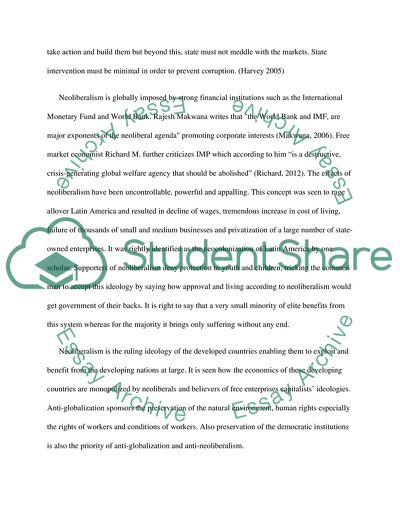Cite this document
(Anti-Neoliberalism Protests in 1998-2013 Essay Example | Topics and Well Written Essays - 1500 words, n.d.)
Anti-Neoliberalism Protests in 1998-2013 Essay Example | Topics and Well Written Essays - 1500 words. https://studentshare.org/history/1818680-an-introduction-of-a-research-report-about-1998-2013-anti-neoliberalism-protests
Anti-Neoliberalism Protests in 1998-2013 Essay Example | Topics and Well Written Essays - 1500 words. https://studentshare.org/history/1818680-an-introduction-of-a-research-report-about-1998-2013-anti-neoliberalism-protests
(Anti-Neoliberalism Protests in 1998-2013 Essay Example | Topics and Well Written Essays - 1500 Words)
Anti-Neoliberalism Protests in 1998-2013 Essay Example | Topics and Well Written Essays - 1500 Words. https://studentshare.org/history/1818680-an-introduction-of-a-research-report-about-1998-2013-anti-neoliberalism-protests.
Anti-Neoliberalism Protests in 1998-2013 Essay Example | Topics and Well Written Essays - 1500 Words. https://studentshare.org/history/1818680-an-introduction-of-a-research-report-about-1998-2013-anti-neoliberalism-protests.
“Anti-Neoliberalism Protests in 1998-2013 Essay Example | Topics and Well Written Essays - 1500 Words”. https://studentshare.org/history/1818680-an-introduction-of-a-research-report-about-1998-2013-anti-neoliberalism-protests.


